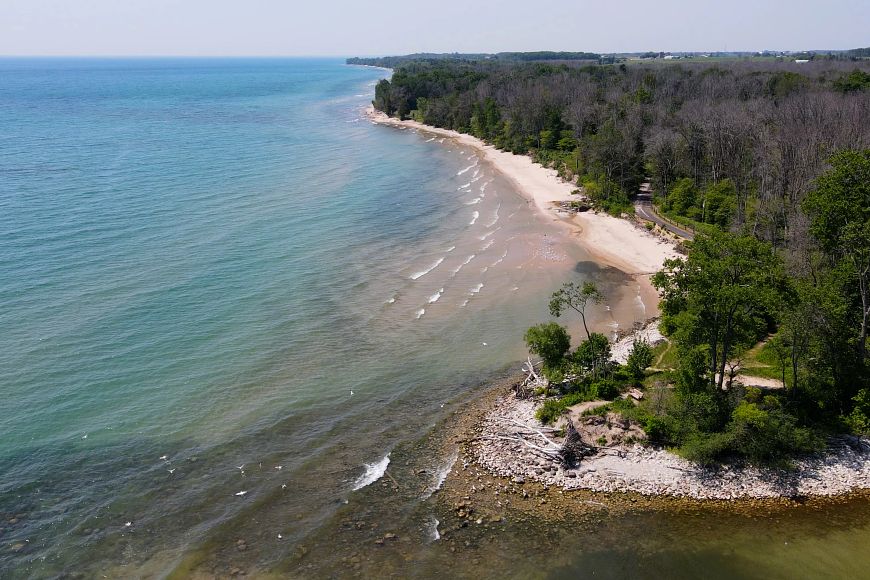Contact: Diane Packett, DNR Office of Great Waters Beach Program Manager
Dianel.Packett@wisconsin.gov or 608-640-7511
DNR Seeking Public Input On Great Lakes Beach Listings
 The public is encouraged to review Wisconsin’s beach list and share feedback with the DNR.
Photo credit: Wisconsin DNR
The public is encouraged to review Wisconsin’s beach list and share feedback with the DNR.
Photo credit: Wisconsin DNR
MADISON, Wis. – The Wisconsin Department of Natural Resources (DNR) is asking the public to help update Wisconsin's beach list to keep people safe on Great Lakes beaches this summer.
Each year, the DNR's beach program contacts residents, local beach managers and public health departments along Wisconsin's Great Lakes coasts to determine any changes needed to the Wisconsin beach list and program information.
A beach is defined as any place where the public has recreational access to the water, regardless of whether the location is used for swimming. Boat launches, some natural areas and private beaches available to the public are included.
Public comments and local knowledge of Wisconsin's Lake Michigan and Lake Superior shorelines provide valuable information about our coastal beaches.
“Public comments ensure the Wisconsin beach list reflects locally used names, along with the status of beaches and boat launches due to changing natural conditions and public access,” said Diane Packett, DNR beach program manager. “We’d like people to let us know if any beaches are missing or not properly identified on the list and if there are boat launches that are no longer active and should be taken off.”
This year’s proposed list includes a change to Maslowski Beaches in Ashland County to create two separate beaches and the addition of a beach at Saxon Harbor Marina in Iron County. The proposed list also reflects updated coordinates and beach lengths.
The federal Beaches Environmental Assessment and Coastal Health (BEACH) Act is an amendment to the Clean Water Act that requires all coastal states, including Great Lakes states, to develop programs for effective water quality monitoring and public notification at coastal recreational beaches. The U.S. Environmental Protection Agency provides grants to participating states to develop and implement a statewide beach program. To maintain Wisconsin’s eligibility for funding under the BEACH Act, state programs must provide an opportunity for public comment when changes to the list or monitoring program occur.
All Wisconsin beaches along the Lake Michigan and Lake Superior shorelines are identified and prioritized for water quality monitoring with these funds.
The federal funding allows communities with Great Lakes beaches to monitor for elevated levels of Escherichia coli (commonly referred to as E. coli), a bacterium that can cause illness if ingested. These bacteria are relatively easy to test for compared to other pathogens, so they serve as a useful indicator of the possible presence of other health risks in the water, such as fecal matter, viruses and other bacteria or pollutants.
“This monitoring data helps local public health officials determine when to close a beach due to unsafe conditions and to notify the public so that beach visitors can make informed choices about swimming at the beach,” said Packett.
The DNR continues to improve and upgrade the beach health database and website features and welcomes feedback on them throughout the year. If you have questions about the beach health website and database, please email DNRBeachHealth@wisconsin.gov or call 608-640-7511.
The proposed changes to the beach list for 2024 are available online on the DNR's website. Please email public comments on the beach listings to DNRBeachHealth@wisconsin.gov by Dec. 31, 2024.

